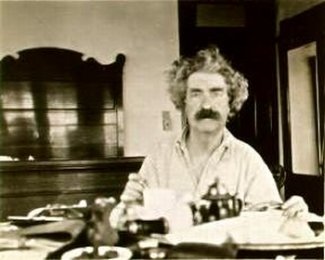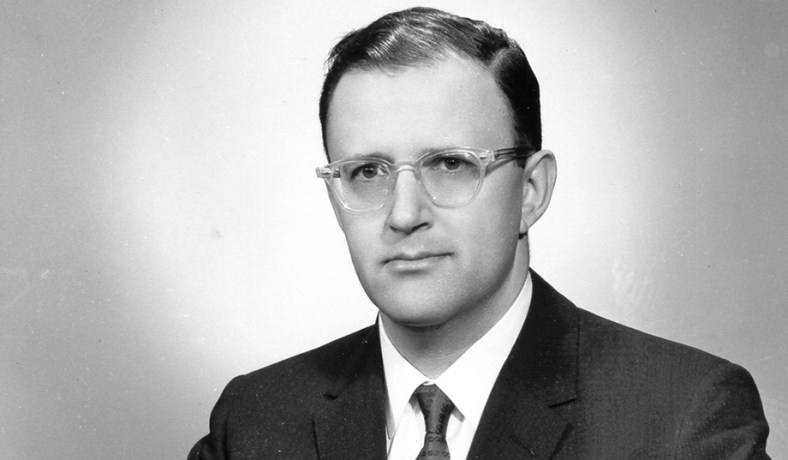Vitalist conservatism has more to offer than its critics let on.
The Libertarian in Denial

No perceptivity, no public-mindedness, no plan.
Bradley Thompson is the BB&T research professor at Clemson University. BB&T pays the bills; his readers pay the price.
That price includes, inter alia, a cartoonish portrait of America and its founding, bleaker than any the most radical Christian critic might offer; philosophical contradictions piled high atop one another; a not-so-small dose of anti-Catholicism; and an inability to distinguish different strands of ideas that is downright, well, cringey (ask your students to explain, professor).
Thompson says a concern for young minds prompted him to intervene in recent debates about the future of conservatism. He worries that too many intelligent young people are following the siren song of “neo-reactionary thinkers”—notably Notre Dame’s Patrick Deneen and yours truly, whom he cheaply and illiterately classes with alt-righters and “Nietzscheans”.
Yet he unwittingly ends up making most of my and Deneen’s points for us.
Voiding Virtue
Start with his interpretation of the founding. For a putative moral historian of the era, Thompson offers a startlingly amoral account. Just when many on the Left and, increasingly, the Christian Right are raising moral questions about the founding, Thompson is here to say, in effect: Yes, the founding is exactly as morally deracinated, soulless, anti-tradition, and unconcerned with the good as you say it is—and that’s how I like it!
I’m not exaggerating. At one point, Thompson writes that I favor “principles, institutions, and virtues very different from those founded in 1788—namely, authority, order, stability, community, social cohesion, continuity, solidarity, sacrifice, duty, law, orthodoxy, virtue, goodness, and God.”
Come again? I had to read that bit twice or three times to make sure I wasn’t misunderstanding. But no. Thompson really contends that the American regime was neither founded in, nor intended to promote, “authority, order, stability, community, social cohesion, continuity, solidarity, sacrifice, duty, law, orthodoxy, virtue, goodness, and God.” These things, Thompson argues, are opposed to the founding’s true philosophy, which entails “market freedom and constitutionally guaranteed civil liberties,” nothing more.
And he wonders why the intelligent young are leaving his pinched worldview behind for political theories that pay attention to things like, you know, order, community, duty, law, orthodoxy, virtue, goodness, and God!
Founding Goods
I can’t speak for my friend Patrick Deneen, but to be very clear: I don’t believe that our founding was nearly as bereft of good things as Thompson suggests.
The Big Guy Upstairs is right there in the Declaration’s first sentence, with its admittedly oblique reference to natural law. The Constitution’s preamble speaks of the “general welfare.” Now, religious Americans can debate whether the God of the Declaration is the same God of classical theism, whether the Jeffersonian “laws of nature” track classical natural law or whether the “general welfare” can be read to mean the common good. But it doesn’t take a moral historian of the founding to see that these documents plainly weren’t the work of a committee of teenagers from the Ayn Rand Reddit group.
Yet Thompson insists that any effort to promote a good society within the American constitutional frame is “anti-American,” some sort of foreign, popish subversion. The Founders, he says, “would not appreciate being told how to order their moral lives by Pope Francis and the Vatican’s lavender mafia,” as if their mere mention suffices to discredit two millennia of Catholic social and political thought.
“While it may be true that Ahmari’s notions of the ‘common good and the highest good are among the bedrock principles of classical and Christian philosophy,’ they are not,” Thompson insists, “a part of the American tradition.” But then he quickly adds: “Unless you think John Winthrop’s puritan Massachusetts was reborn in 1776 and re-instituted in 1788.”
Well, yes, quite. Does the moral historian of the founding seriously suggest that the Puritan legacy isn’t part of the “American tradition”? And how can Thompson so neatly divide classical political philosophy from the mind of an Alexander Hamilton, who signed his correspondence “Tully” (for Cicero)? Did John Adams not say of the same Cicero that “all the ages of the world have not produced a greater statesman and philosopher united in the same character”?
Even the founders, then, are too foreign, too impurely libertarian, too anti-American for the BB&T research professor at Clemson University.
Form Without Substance
Most appalling, however, is simply Thompson’s failure to summon any substantive solution to the problems of the age: the moral degeneracy, the social atomization, the destruction of the middle class, the loneliness and opioid crises and so on. Either he doesn’t recognize the decay that confronts us as such, or he knows that his libertarian vision has no solution for them and asks us to grin and bear it all in the name of an abstract doctrine of maximal individual freedom.
These are the crises that are driving the intelligent young to reconsider political theory and philosophy, to recover the wisdom of Aristotle and Augustine and Aquinas. Thompson has no answer for them, other than to fecklessly and impotently wave away a “top-down approach”! No social problems arise from individualism itself, in his view, and there is none to which more individualism isn’t the answer.
In defending the founding—as he sees it, by his own dim lights—Thompson only exposes the moral and intellectual bankruptcy of the libertarian tendency he represents.
The American Mind presents a range of perspectives. Views are writers’ own and do not necessarily represent those of The Claremont Institute.
The American Mind is a publication of the Claremont Institute, a non-profit 501(c)(3) organization, dedicated to restoring the principles of the American Founding to their rightful, preeminent authority in our national life. Interested in supporting our work? Gifts to the Claremont Institute are tax-deductible.
America once recognized the common—and highest—good.
There there, Pepe—it’s gonna be O.K.
We are inclined, but not fated, to decadence.
On C. Bradley Thompson and Harry V. Jaffa.
The ineffectual truth of philosophy won’t save America.






